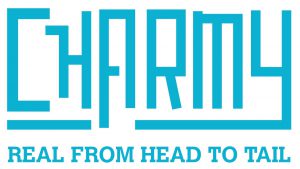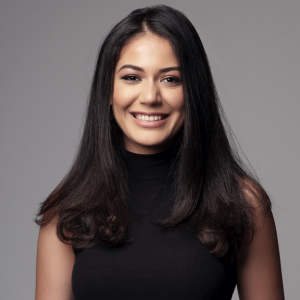On Wednesdays, we startup.
To celebrate our women-identifying founders, we’ve put together ‘On Wednesdays, we startup’, a blog series dedicated to putting women founders center stage to acknowledge their work, complexities and wins!
We hope to push women-founder stories forward and share lessons learned and insights for other aspiring women entrepreneurs.
This week, we had the pleasure of chatting with Salma El-Yassir and Marijana Novakovic, the Co-Founders of Womaneze, to learn more about their startup, how they’re helping women navigate menopause, and their hopes for the future of the femtech industry.
Can you tell us a little bit about yourselves, and how you founded Womaneze?
 We are two women who have crossed the threshold of 60! We both went through menopause and had difficulties with it, but at the time, there was very little information and support available for women.
We are two women who have crossed the threshold of 60! We both went through menopause and had difficulties with it, but at the time, there was very little information and support available for women.
As a result of hormonal changes, we had both been battling the extra pounds that come with menopause. We met for the first time through an online forum for managing weight. Eventually, we became good friends, travelling to visit each other with our families in our respective home countries!
We had hundreds of conversations about our experiences battling the physical, psychological and social onslaught of menopause without any tangible support – all while holding down jobs and raising our families.
Despite being well-informed on health matters, we both felt blind-sided by menopause – the topic of menopause isn’t openly spoken about, making it a taboo topic in women’s health. It is only referred to with a witty smirk or an embarrassing silence, even though it affects every single woman alive.
That’s when we decided to team up and found Womaneze, a platform that we would have only dreamed of when going through menopause.
Marijana is a lawyer and an ex-banker, and Salma worked in both healthcare and development. We decided to leave our respective jobs to work for ourselves and create a company that reflected what we stood for.
Supporting women through menopause was something that we both cared deeply about, and we knew it was time to take the leap and make a positive change.
As our next step, we both pursued postgraduate education. Salma has a Master of Public Health and a Master’s of Public Administration, the latter from Harvard, and Marijana has a Master of Laws specializing in EU Law, and HR. We each held senior management positions in our respective fields, and are trained and certified coaches, which is very helpful in creating safe spaces for women to interact and share their own experiences of menopause. Our skills are complementary, which allows us to focus on our strengths and be supportive of one another.
What exactly is the Womaneze platform, and what is it trying to accomplish?
Womaneze helps women navigate menopause and regain control naturally. It’s a platform that aims to normalize the experience of menopause by bringing the subject out into the open, so women do not have to suffer in silence and feel alone.
We’re proud to say our community has over 44,000 women who engage with us and with each other on a daily basis.
Womaneze takes a scientific, but non-medical approach, to menopause. We focus on how a woman can help herself, and others around her, to better understand menopause by using holistic strategies that have been proven by science.
Of course, there are women who require medical assistance during menopause, but for the majority, it is a natural (yet challenging) transition. We help women understand what is going on in their bodies, what to expect, and how to reduce the negative effects of hormonal changes.
We are creating a space where women can speak openly about their own experiences, and find information and support. We support women through normalization, information and communication. We do this by:
- Shedding light on the 47+ symptoms of menopause. Most women are surprised to learn that their symptoms are menopause-related, or that perimenopause can begin in your early 40’s.
- Allowing them to express their doubts, fears, and worries. Often overlooked compared to the physical effects, there are psychological effects caused by changing hormones. When women are surrounded by others in the same boat, they feel empowered to share stories and strategies that help them cope.
- Making research accessible. We highlight natural ways for women to help themselves by curating research.
- Helping with hot flashes through tech. We have developed an app that focuses on helping women find natural ways of dealing with hot flashes. 70-80% of women going through menopause will experience hot flashes and in some cases, they can be debilitating.
We help women understand what is going on in their bodies, what to expect, and how to reduce the negative effects of hormonal changes.
What have been your top lessons learned since starting Womaneze?
- The importance of clear communication between founders. A good working relationship among founders is the basic building block of a successful startup. Learning to manage differences of opinion (often strong ones) in a productive manner is very important.
- Finding a co-founder with complementary skills. No one can be the best at everything. Understanding your own strengths and weaknesses is key, as is leveraging the strengths of others. Knowing when it’s best to get out of the way and letting others do what they do best is essential.
- Don’t be wedded to a single idea. Continuously collect data and adjust as you go along. Data and metrics help illuminate the way and avoid costly mistakes.
- Don’t be afraid to make mistakes. Being an entrepreneur is about taking risks and learning from them!
- Being an entrepreneur can be very tough. There is so much to learn and juggle. Make sure to manage your own doubts and fears and keep your head above water!
The femtech space has certainly been growing, as there has been a boom of new products and services developed to support women’s health. However, only 5% of femtech startups address menopause. Why do you think this is the case?
One of the main reasons is the lack of funding and investment, as women-founded startups receive far less funding than male-founded ones. In 2020, women-founded startups received 2.3% of all VC funding.
The ecosystem has an age bias that tends to favour younger founders, who are often less likely to be interested in menopause. People often have an image of what a founder looks like — a 20-something male and who only survives on ramen and works 24/7.
Women entrepreneurs who are more likely to be interested in the menopause space are less likely to fit the false pretences of what founders ‘should’ look like.
The consumer technology revolution has only really taken off in the past couple of decades, with the use of smartphones becoming almost ubiquitous. The generation of women used to managing their health and tracking their data is only now beginning to enter perimenopause and explore solutions to help manage their health.
Today, there are a plethora of period and fertility tracking apps in comparison to menopause apps. This trend is beginning to shift as more tech-savvy women begin to enter the menopause transition.
There is also the undeniable — the taboo nature of the subject. Like fertility issues (another taboo subject until recently), menopause is an aspect of being a woman. Historically, society has placed a large emphasis on the fertility of women. Menopause announces the end of fertility and this can be difficult, leaving many women feeling invisible.
For all the progress that society has made in the gender equality arena, this remains an issue that needs to be addressed, and many startups are beginning to do so. Menopause is not sexy; men often cringe when it comes up, and younger women often feel that it is irrelevant to them, as it is a ways away.
People often have an image of what a founder looks like — a 20-something male and who only survives on ramen and works 24/7. Women entrepreneurs who are more likely to be interested in the menopause space are less likely to fit the false pretences of what founders ‘should’ look like.
Menopause support has been identified as the next game-changer in the global femtech industry. As new startups look to enter the space, what do you hope for the industry to achieve at large?
We hope that the voices of the 1 billion women in menopause are heard.
We hope new startups in the space call out the organizations and industries that need to step up and pay more attention to older women.
The needs of women in menopause change — their skin changes, their hair changes, even the way perfume smells on their skin changes. The beauty and clothing industries need to pay more attention to this demographic, and cater their services and products to better suit their needs.
More importantly, the workplace needs to accommodate women who are in the different stages of menopause. Women often have to leave their jobs because of the overwhelming nature of certain symptoms. There is a huge opportunity for HR policies to adapt and support their women staff, similarly to providing maternity and paternity leave.
A supported employee is a happier and more productive one.
We’d like to see more women in menopausal transition come out from the shadows and demand better products and services that cater to their particular needs. The way menopause is discussed and managed needs to change completely.
Femtech founders have faced challenges in fundraising, as a majority of VC investors are men. Apart from market opportunity, why should more investors look into supporting femtech, and products and solutions that support women going through menopause?
Market opportunity and return on investment (ROI) are the primary reasons that investors decide to invest. However, there are more and more investors who are beginning to define ROI by more than just profit, but social good.
Every investor, regardless of gender, has a vested interest in bettering the lives and health of women. They have daughters, sisters, friends and mothers. Women account for half of the population, and addressing women’s health improves the diversification of investor portfolios.
What advice would you give to founders looking to break into the femtech space?
 We think it is very important for founders to really understand the niche that they are addressing. Listening to what women want and are really looking for is essential.
We think it is very important for founders to really understand the niche that they are addressing. Listening to what women want and are really looking for is essential.
Younger women have a different attitude towards their health and what they expect. They are more vocal about what they need and are beginning to reject societal norms that have been created by advertisers and society.
They are demanding a different approach, which incorporates a less prescriptive attitude, and validates their unedited experiences with their own bodies.
Femtech should be less about the tech and more about the needs of women. Although tech is ‘sexy’ we must remember that it’s an enabler to solve an issue, not the solution itself. It’s important for people on the tech side to be fully immersed in understanding the problem. We found that having a female CTO was crucial, as the work was also relevant to her and she genuinely cared about it.
Founders looking to break into femtech should make sure their team is reflective of the women they are looking to support. At the very least, the startup should have women as close advisors. Experiencing the issue firsthand leads to a deeper understanding and, therefore, a better product.
Femtech should be less about the tech and more about the needs of women. Although tech is ‘sexy’ we must remember that it’s an enabler to solve an issue, not the solution itself.
Are there any women founders that you both look up to for inspiration?
We admire courageous and forward-thinking entrepreneurs such as:
- Sarah Blakely, the Founder and CEO of Spanx, for her tenacity and unwillingness to listen to the nay-sayers, and for making Spanx a huge success.
- Nadia Boujarwah, the Co-Founder and CEO of Dia&Co, for her tenacity and belief in her vision that led her to create a successful company with over 145 employees. She saw a need for fashionable and fun oversized clothing, and she went out and created it. She had to speak to around 100 investors before she could get investors to see her vision.
- Rochelle Weitzner, the CEO of Pause, a well-aging company creating skincare products for women in menopause. We love her concept of well-aging rather than anti-aging.
- Sonsoles Gonzalez, the CEO and Founder of Better Not Younger, a company creating hair care products for menopausal women.
What’s in store for Womeneze?
Womaneze is in the process of launching its first premium features for the Hot Flash Help app as well as launching a space for women to find products that help with menopause. We have a list of premium features that we will be introducing in the next few months. Women will be able to specify what issues they want to track, and export data in a format that helps them address their hot flashes with their health provider.
We have a list of premium features that we will be introducing in the next few months. Women will be able to specify what issues they want to track, and export data in a format that helps them address their hot flashes with their health provider.
We will also be including a feature where women are matched with other women to create support groups based on issues they are experiencing in menopause, interests, or geographical location.
Womaneze will be offering a 60% discount for premium features until mid-September 2021. Head over to their website to learn more.
Make sure to follow the DMZ on Twitter, Linkedin and Instagram to follow our ‘On Wednesdays we startup’ women founder series.
To learn more about the Women Founders Programs, visit dmz.to/womenfounders.












 We are two women who have crossed the threshold of 60! We both went through menopause and had difficulties with it, but at the time, there was very little information and support available for women.
We are two women who have crossed the threshold of 60! We both went through menopause and had difficulties with it, but at the time, there was very little information and support available for women. 

 I came to Canada at the age of 17 from Morocco – all by myself. I went to the University of Toronto where I studied political science. After graduating, I wasn’t sure what I wanted to pursue. So, I decided to leave Canada temporarily, travelled back to Morocco, and spent almost one year in Turkey where I taught English.
I came to Canada at the age of 17 from Morocco – all by myself. I went to the University of Toronto where I studied political science. After graduating, I wasn’t sure what I wanted to pursue. So, I decided to leave Canada temporarily, travelled back to Morocco, and spent almost one year in Turkey where I taught English.
 I look at the series as a communal platform for women to share the incredible tech businesses they are working on. To me, it’s an opportunity to build authentic relationships in the tech ecosystem with fellow women founders. Plus, it’s a bonus if a business deal comes out of it. All in all, I feel privileged to be part of this group.
I look at the series as a communal platform for women to share the incredible tech businesses they are working on. To me, it’s an opportunity to build authentic relationships in the tech ecosystem with fellow women founders. Plus, it’s a bonus if a business deal comes out of it. All in all, I feel privileged to be part of this group.  Traditionally, women founders are underrepresented and have been excluded from the inner circles that contain key resources and connections.
Traditionally, women founders are underrepresented and have been excluded from the inner circles that contain key resources and connections.  There are three foundational values I try sticking to as a woman founder. First, especially when starting out, always ask yourself ‘what is your
There are three foundational values I try sticking to as a woman founder. First, especially when starting out, always ask yourself ‘what is your